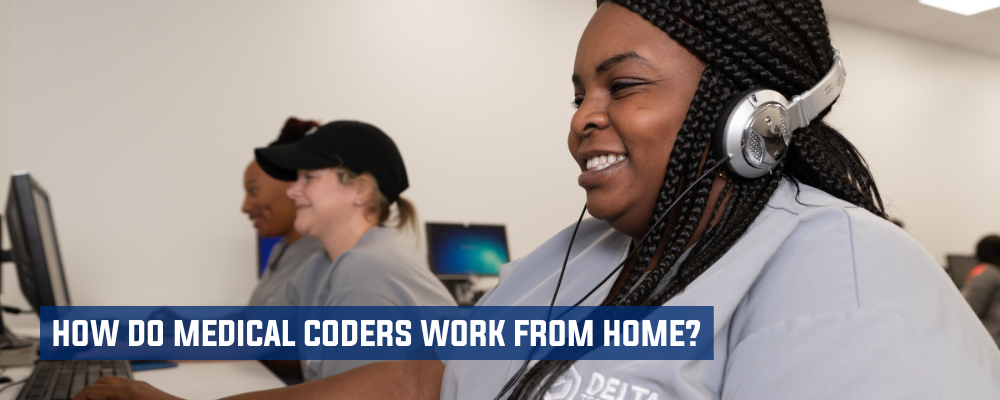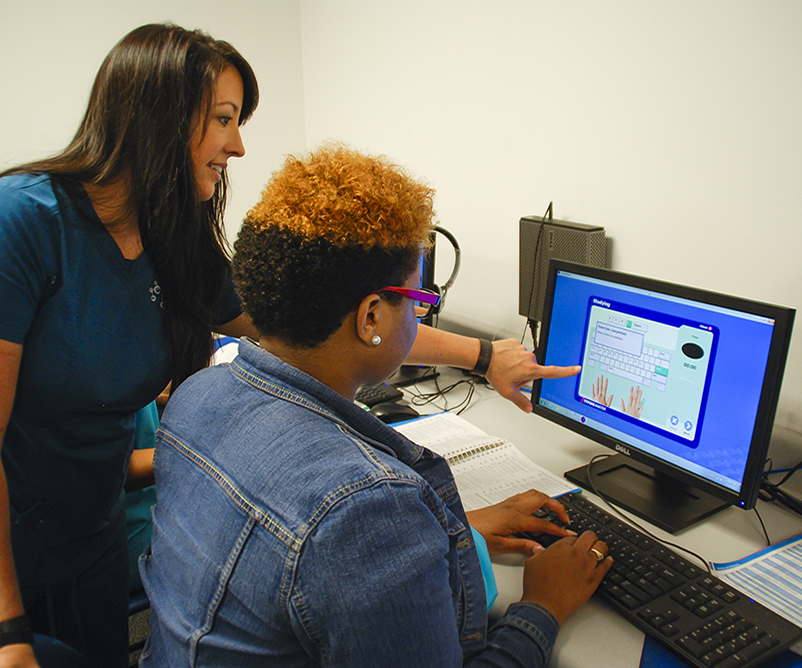Are you interested in an allied health career, but you don’t know where to begin? Are you a detail-oriented person, interested in learning medical coding, but you aren’t sure what’s involved?
Medical coding is the translation of written or verbal descriptions of medical procedures, illnesses, injuries, and diseases into numerical designations known as codes.
An entry-level career in coding is possible after completing several stages of preparation, as detailed below.
1. Find the Right Medical Coding School
Compared to a four-year college, training as a medical coder at a trade school is a shorter timeline and less expensive.The Medical Coding Specialist Program at Delta Technical College (Delta Tech) offers students the skills and knowledge they will need for an entry-level position in the medical coding field.Instruction focuses on analysis of medical records (charts), becoming familiar with the content of the records, and the appropriate assignment of codes. This includes learning to locate the necessary information to support a code, or provide more coding accuracy with specific details.Students in the Delta Tech Medical Coding Specialist Program take classes in anatomy and medical terminology. The study of diseases is also an important part of training for medical coding students. They learn etiology (disease causes), pathology (disease behavior), symptoms, signs, diagnostics, and treatment. This detailed information allows for proper coding.The timeline for the program is 35 weeks (nine months), 765 clock hours (including 225 externship hours), 135 additional outside hours of training, and 28 semester credits.The Delta Tech Medical Coding Specialist Program is offered only at Horn Lake, MS campus, where daytime and evening classes are available.
2. Take the Certified Professional Coder Exam
The next step in becoming a medical coder is taking the Certified Professional Coder (CPC) exam, which is administered by the American Academy of Professional Coders (AAPC). Becoming a CPC demonstrates that you:
- Understand the coding system, and how it applies to medical billing practices generally, and individual medical practices specifically
- Have the ability to translate and interpret a physician’s notes and translate them into recognized medical codes and billing, including anatomy, physiology, and medical terminology necessary to correctly code provider diagnoses and services
- Possess an excellent grasp of the ICD-10 manual and have familiarity with CPT (Current Procedural Terminology) and HCPCS (Healthcare Common Procedure Coding System) To learn more, read “What is Medical Coding and Is It for You?“
Interested in Learning More About Medical Coding?
Fill out the form below to receive info about our career training programs.
3. Seek Medical Coding Employment
Once you are ready to work as a medical coder, you can seek employment in a medical office, clinic, hospital, or insurance company.The majority of your day may be spent at the computer, where you will review documents and charts to understand diagnoses, procedures, dates, and provider information. You will then translate those notes into the proper codes for a completed medical record. Medical coding can sometimes be done remotely.
Starting Your Career as a Medical Coder
Medical coding is predicted to see continued job growth. The population is living longer, and disease registries have become a useful source of medical data, which could increase opportunities for medical coders. If you are interested in pursuing these opportunities, the first step is completing the required training. Contact the Admissions Team at Delta Tech to learn about enrolling in the Medical Coding Specialist Program.
Sources
https://www.bls.gov/ooh/healthcare/medical-records-and-health-information-technicians.htm#tab-6


